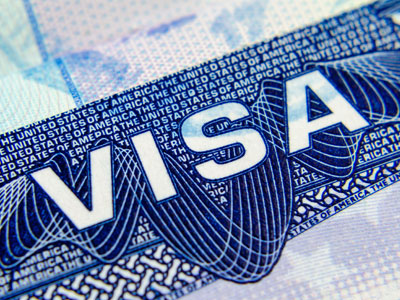
If I’m a victim of abuse, what protections does VAWA offer me? What does VAWA mean?
VAWA stands for the Violence Against Women Act. However, it does not only apply to women—it applies to everyone. VAWA provides immigration options for both immigrants and non-immigrants to obtain legal status in the U.S. without relying on an abusive spouse, child, or parent who holds lawful status.What is a VAWA self-petition? Who is eligible?
A VAWA self-petition is an immigration petition a person can file if they’re a victim of domestic violence. The abuser may be a spouse, parent, or child who is a lawful permanent resident or U.S. citizen. If approved, the self-petitioner obtains legal immigration status. Anyone abused by a qualifying relative may be eligible to file a self-petition under VAWA.Can I file a VAWA self-petition if I’m in another country?
Yes. You can file a VAWA petition whether you're inside or outside the U.S., as long as you meet eligibility requirements. You must be a victim of abuse by a qualifying relative who is a lawful permanent resident or U.S. citizen.If my petition is approved, when can I apply for a green card?
Once your self-petition is approved, you can immediately apply for lawful permanent residence.What is the battered spouse or child waiver?
This waiver applies to individuals who obtained conditional residence through a family relationship but were abused. Instead of filing jointly with the abuser to remove conditions after two years, the abused spouse or child may file alone under the waiver.What is VAWA cancellation of removal?
Similar to a VAWA self-petition, cancellation of removal is sought in immigration court. It’s for individuals in removal proceedings who have suffered abuse from a qualifying relative. The main difference is that self-petitions go to USCIS, while VAWA cancellation goes through an immigration judge.If the battered spouse or child waiver is approved, what is their status?
If approved, the individual becomes a lawful permanent resident.
What is a U visa?
A U visa is for victims of qualifying crimes who report the crime to law enforcement and are willing to help in the investigation or prosecution. It grants legal status and eventually allows the person to apply for a green card after three years.How long is a U visa valid?
A U visa is valid for three years and can be extended for another three years.How long does it take to get a U visa?
Because only 10,000 are issued annually, it can take 6–8 years to receive approval. However, if your petition is likely to be approved, you may receive a Bona Fide Determination or Deferred Action and a work permit within about a year.What if Immigration denies my U visa petition?
You can appeal or refile with more evidence. If neither is done, you may be placed in removal proceedings.Can I apply for a U visa from another country?
Yes, if the qualifying crime occurred in the U.S. and you reported it to U.S. authorities.If my U.S. citizen child is a crime victim, can I, an undocumented parent, get a U visa?
Possibly. If your child is cooperating with law enforcement, you may qualify as a derivative U visa applicant.Can I apply for a U visa while in removal proceedings?
Yes, but not directly to the immigration judge. You must file with USCIS and request the judge to pause your proceedings.Can I get a work permit with a U visa?
Yes, once your U visa is approved—or earlier, if you receive a Bona Fide Determination.Can I still get a U visa if the abuser is undocumented or we weren’t married?
Yes. The abuser doesn’t need to be related or have legal status. As long as you were a victim of a qualifying crime and cooperated with law enforcement, you may qualify.If I’m a victim of domestic violence, should I apply for VAWA or a U visa?
It depends. If you’re legally married to a U.S. citizen or LPR abuser, apply for VAWA. If not, and you reported the crime, a U visa may be an option. VAWA doesn’t require a police report or physical violence—emotional and psychological abuse may qualify.Can my family benefit from my U visa status?
Yes. U visa holders can sponsor qualifying family members like spouses and children.
What is human trafficking and how does it relate to T visas?
T visas are for victims of human trafficking—whether for sex or labor. Labor trafficking may involve forced work, wage theft, or unsafe conditions. T visa holders must have been brought to the U.S. for exploitation and must assist law enforcement.Can I work legally with a T visa?
Yes. A T visa grants employment authorization.Will I be deported if my T visa is denied?
If denied, and you don’t appeal or reapply, you may be placed in removal proceedings. However, denial doesn’t mean automatic deportation—you’ll have a chance to present your case to an immigration judge.Can my family get T visas too?
Yes. Your spouse, children, and sometimes parents may qualify for T visas as derivatives.
How long does a T visa last? What happens when it expires?
It’s valid for 3 years. After one year, you may apply for a green card or request an extension.Do I need a lawyer to apply for a T visa?
Technically, no. But because of the complexity, working with an experienced immigration attorney is highly recommended.Need help?
For more information on VAWA, U visas, or T visas, your best next step is a consultation. Call (305) 907-6151 today to get the legal answers you need.
Call Us Now To Get Your Case Reviewed
(305) 907-6151